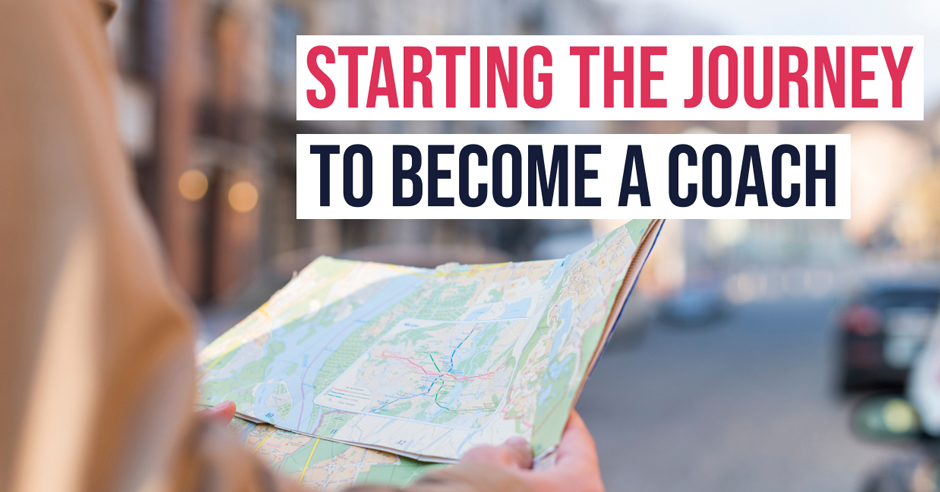I couldn’t say how many coaches I’ve come across over the years, though it would be far too many to count. Coaches are such an interesting and widely diverse group of people, and I’m always intrigued to learn how they ended up choosing coaching as a career and what nudged them over the line. Often they will tell me that becoming a coach was a gradual process, something they had been considering for a long time before taking the plunge, and that they invariably struggled with knowing where to start.
Why coach? Because coaching is a fascinating and fulfilling journey of supporting others and helping them achieve what is most important to them. Over a decade ago, I made the decision to leave my corporate career behind and move into coaching. I had been a CEO for over twenty years by then and had been inspired by many people along the way, a common theme among other coaches too. Each has been influenced by other coaches, teachers, mentors or key individuals who sparked an interest in making a real difference to others. Coaching makes that difference possible.
Is coaching calling you?
I firmly believe that coaching is a calling rather than a career and it may take a while to recognise that you are being called towards coaching. I thoroughly enjoyed my corporate career – the challenges, the rollercoaster of failures and successes, the travel and trappings of success – though in my heart I knew there was more. Upon reflection, I can see that what was most fulfilling and important to me was supporting others to grow and develop themselves, especially those individuals who went beyond what they initially thought possible.
Look before you leap
By the time I had made the decision to become a coach, I had thoroughly researched the coaching profession and had clarity around what it would take. I knew what to look for in a coach and had first-hand experience of being coached. Importantly, I was clear about who I wanted to work with. For example, I knew that I wanted to work with business leaders, preferably those who had high levels of autonomy and influence, and who led and influenced teams. I had less interest in working with individuals who didn’t want to grow. However, I also loved working with people who were stuck or had stagnated in their development but wanted to move forward. It was clear to me where I could make a difference.
Once I had determined the fundamentals, I started exploring my options. There were several different coach training courses available at the time, though nowhere near the options available today. It can be daunting, so, as a starting point, I suggest you find a successful coach and ask them for guidance.
I had initially set my sights on enrolling in a university coaching course, though I was challenged by how I could maintain an income while learning this new craft. I approached one of the leading coaching bodies at the time and, though helpful, I came away with more questions than answers. As it turned out, my wife introduced me to a woman who ran a coaching business. Within weeks of being introduced, we were working together and I was off and running, refining my craft on the court. I’d gone from corporate executive to coach overnight. I really appreciate those early days working with her; it was an invaluable boost to the start of my career as a coach.
Do the math
When I started coaching, it was initially a significant financial step backwards. This factor should not be underestimated or ignored. I may have had the benefit of receiving a minimum level of income, however, I had to generate and maintain sufficient clients to ensure my role was secure. No clients, no income! That’s the real world.
It is naïve to think you can start ‘right out of the blocks’ as a new coach and secure your dream income straight away, though many coaches think that’s precisely how it works. You need to do the math, work out what it will take, how long it will take, how much it will cost and who can support you in getting there. Invest the time to find a coach who has a successful practice and ask them about their journey.
Find your tribe
When I joined that little coaching organisation over a decade ago, the most valuable thing I gained was the community of coaches I worked with. The training was invaluable, though there is something powerful about being a part of a supportive community when it comes to growth. We always achieve far more when surrounded by others on the same journey.
Training programs often claim to offer ‘community’. In reality, however, they are little more than groups of loosely acquainted individuals without the interpersonal connections needed to unite them and make them stronger. Today, I am privileged to be part of a hugely supportive community of coaches at Engenesis Coach Academy, where we deliberately encourage and grow our cohorts. I frequently challenge coaches who choose to ‘go it alone’ because, as human beings, we are social creatures designed to be part of a community. The chances of being successful on your own are limited. You will always find far greater success when working with others.
Find a community that is supportive and aligned with you and your goals. They don’t have to be your new best friends, though it always works better when you actively support each other and maintain close communication. If you want to learn more about being a coach or joining our thriving community of coaches, you can learn more about the Thrive Coach Training Program here.
